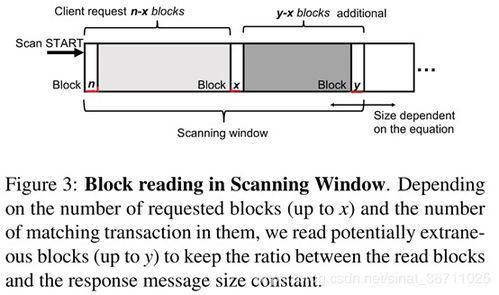Bitcoin Privacy: Understanding Secure Transactions, Anonymity, and Techniques
In the digital age, privacy has become a paramount concern, and this is especially true in the realm of cryptocurrency. Bitcoin, the pioneering digital currency, offers a level of privacy, but it is essential to understand its limitations and the methods available for enhancing this aspect. This article delves into Bitcoin privacy, examining secure transactions, anonymity, and various techniques to protect users\’ financial information.
In the digital age, privacy has become a paramount concern, and this is especially true in the realm of cryptocurrency. Bitcoin, the pioneering digital currency, offers a level of privacy, but it is essential to understand its limitations and the methods available for enhancing this aspect. This article delves into Bitcoin privacy, examining secure transactions, anonymity, and various techniques to protect users’ financial information.


Understanding Bitcoin’s Privacy Features
When considering Bitcoin privacy, it is crucial to understand how the network operates. Bitcoin transactions are recorded on a public ledger known as the blockchain. This transparency ensures security but also raises concerns regarding user anonymity. While addresses are pseudo-anonymous, meaning they do not directly reveal users’ identities, they can still be traced back to individuals through various means, especially when combined with other data sources.
One of the main features that affect Bitcoin’s privacy is the use of public addresses. Each time a user generates a transaction, they utilize a specific address. However, if the same address is reused, it can correlate multiple transactions to the same individual, making it easier for others to track their financial activities. To enhance privacy, it is recommended that users create a new address for each transaction.
Furthermore, certain Bitcoin wallets incorporate privacy measures, such as address obfuscation and CoinJoin functionality, allowing multiple users to combine their transactions. This method complicates the transaction trail, thereby enhancing privacy by making it difficult to distinguish which input corresponds to which output.

Techniques for Enhancing Bitcoin Privacy
Several techniques exist for individuals seeking to bolster their Bitcoin privacy. A prominent method is utilizing privacy-focused wallets. These wallets commonly integrate advanced features designed to anonymize transactions, helping to shield user identities from prying eyes.
Another effective technique is using mixing services. These services effectively ‘mix’ coins from different users, which obscures the transaction trail and helps to detach the link between sender and recipient. While mixing services add an additional layer of privacy, users should exercise caution and select reputable providers to avoid potential scams.
Furthermore, employing a VPN when making transactions can also enhance privacy. A Virtual Private Network (VPN) encrypts internet connections, making it difficult for third parties to monitor online activities. Coupling a VPN with secure wallets and mixing services creates a multifaceted approach to privacy protection.
In summary, while Bitcoin provides some level of anonymity through its decentralized, blockchain-based architecture, users need to adopt additional strategies to amplify their privacy. Understanding the inherent attributes of Bitcoin transactions and taking proactive steps—such as using diverse addresses, privacy-centric wallets, mixing services, and VPNs—can significantly enhance the secutity and privacy of one’s financial interactions in the cryptocurrency space.




